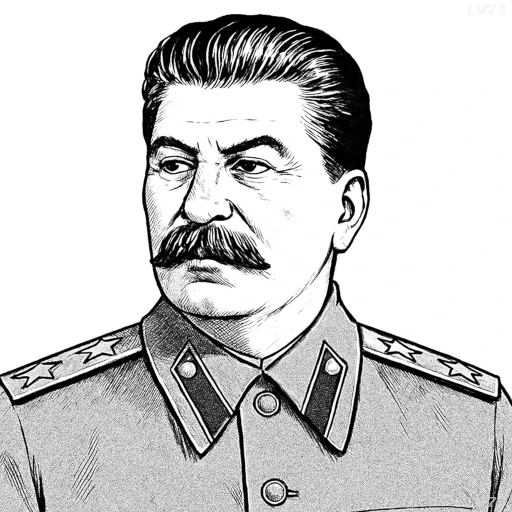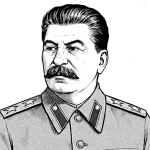“History shows that there are no invincible armies.”

- December 18, 1878 – March 5, 1953
- Born in Georgia
- Politician
table of contents
Quote
“History shows that there are no invincible armies.”
Explanation
This quote highlights the fallibility of military power and the idea that no matter how strong or seemingly invincible an army may appear, it is always vulnerable to defeat or failure. Stalin’s belief in the impermanence of military superiority reflects the harsh realities of warfare and the importance of strategic thinking, resilience, and adaptability. Even the most powerful forces can be overcome by changing circumstances, innovative tactics, or sheer perseverance. Stalin himself witnessed this firsthand during the Great Patriotic War (World War II), when despite the immense strength of Nazi Germany’s military, the Soviet Union ultimately triumphed through resilience, strategic retreats, and counteroffensives like the Battle of Stalingrad.
In the historical context of Stalin’s time, this statement can be seen as a recognition that even the Soviet Union, which had faced numerous challenges, including purges of its own military leadership, was not invulnerable. Stalin understood that military power alone could not guarantee victory or security, and that moral, political, and strategic factors played a significant role in shaping the outcome of conflicts. His leadership, marked by both ruthless control and strategic military decisions, was guided by the belief that strength was not just in numbers or weaponry, but in the resolve and unity of the people.
In a modern context, this quote serves as a reminder that military strength is not the only measure of power or success. It underscores the importance of diplomacy, international cooperation, and nonviolent conflict resolution, as no army, no matter how powerful, is invincible. Today, it also raises awareness about the shifting nature of warfare, where asymmetrical conflicts, cyber warfare, and economic factors can influence outcomes just as much as traditional military force. The quote calls attention to the need for nations to consider holistic approaches to security, peace, and stability, rather than relying solely on military might.
Would you like to share your impressions or related stories about this quote in the comments section?
